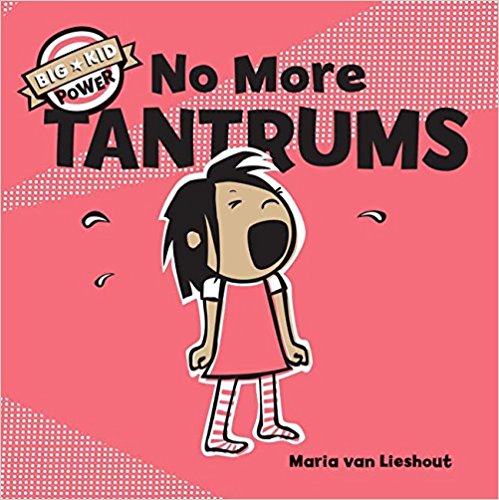Temper tantrums. There’s no telling when or where they will strike. Just thinking about them makes a parent break out in a cold sweat. But what if there was a way to stop meltdowns before they start? It’s possible, trust us. We looked high and low for tools and tricks to keep tantrums at bay, and below are our favorite mom-tested-and-approved methods. Take a peek and try one (or a few) out the next time your kid starts to go blue in the face.
1. Hug it out. After studying more than 100 tantrums, researchers at the University of Minnesota concluded that tantrums often involve anger and sadness. And since anger tends to fizzle out quicker than sadness, the way past a tantrum is to tend to the sadness, which leaves us with hugs! That’s right–enveloping your wailing child in a warm, well-timed hug may help ebb the tide of a tantrum.

photo: iStock
2. Take a deep breath and stay calm. A surefire way to escalate your kid’s tantrum is to flip out and start losing your cool. Taking a deep breath before entering the fray may help steady your nerves and keep everything in perspective. Remind yourself that ALL kids have tantrums, and this too will end.
3. Try a distraction like acting silly. They say laughter is the best medicine, but it’s also great at distracting your child during a temper tantrum. Making a silly face or a funny noise might just turn your child’s head away from what they’re tantrum-ing about and make them laugh. It’s worth a shot.

photo: iStock
4. Create a calming center. Sometimes temper tantrums are born out of anxiety and frustration. A great way to counteract that, especially when you’re at home, is to create a calming center in a quiet room or corner of your house. You can search on Amazon for items—including the Calm Down Jar, which is a tube filled with a glittery gel and water that your child can swish back and forth. There are also fidget toys, fidget spinners, homeopathic calming tablets, calming essential oil, and more.
5. Just walk away. Not every parent will be comfortable with this method, but sometimes just walking away and letting the tantrum fizzle out works great. Obviously, this way works best if you’re at home or in a contained spot (not out at a restaurant, the mall, the movie theater, etc), but if you can just leave the room, your child may lose interest in their tantrum and calm down on their own.

photo: Chi Yoga
6. Yoga breathing. A big trend now in nursery schools is tiny yoga, and part of this practice is teaching children to deep breathe and be cognizant of their breathing. Practice this when she’s not having a tantrum so she understands the practice and enjoys the calming effect. Once she’s mid-tantrum, just calmly ask her to take a few deep breaths and hopefully, this will work to calm her down.
7. Validating and empathizing with your kid. Guess what? Your kid has a temper tantrum when he’s upset or sad or unsettled or for a million other reasons, but the main reason is that he’s not happy about something. Why not try showing him you understand and that you get that he’s upset? Validating why your tot is upset may open the door to communication instead of screaming, wailing, etc.
8. Try picking up a book. There are tons of books out there about warding off temper tantrums but the one we’re excited about is No More Tantrums. In author Maria van Lieshout’s newest addition to the Big Kid Power series, she tackles tantrums and different ways both parents and kids can fight through them. Advice for kids includes ideas such as “Big kids use their words” and “When I’m upset I take a little break.” The illustrations are adorable and are great for demonstrating to children the different ways to calm down.
9. Preparing them and setting out expectations. If you’re going to a restaurant, let your kids know beforehand that there won’t be ice cream for dinner. If you’re heading to the movies, let your kids know what they can and cannot get from the concession stand. Why? Because giving kids parameters and guidelines often help them feel more in control. We’re not saying this will eliminate tantrums on the road, but it will help lessen them since your children will know beforehand what’s allowed.











